Charlemagne Prize

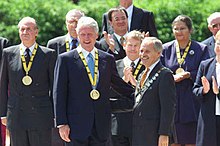
The Charlemagne Prize , in full form since 1988, the International Charlemagne Prize in Aachen , has been awarded annually in Aachen since 1950 to public figures who have rendered outstanding services to Europe and European unification .
The award was named after Charlemagne , who was praised as " Father of Europe " ( Pater Europae ) during his lifetime and is still considered to be a person who has shaped the collective European historical consciousness. At the end of the eighth century he founded the Aachener Königspfalz and made Aachen the political, spiritual and cultural center of his empire , which extended over large parts of Europe. According to the initiator Kurt Pfeiffer, the choice of name was intended to build a bridge from the past to the future.
The prize consists of a certificate signed by the members of the Charlemagne Prize Board and a medal. The obverse of the medal shows the image of Charlemagne on his throne with the inscription Carolus Magnus Romanorum Imperator Augustus ( Latin for "Charlemagne, exalted Emperor of the Romans") - a representation of the oldest surviving Aachen city seal from the early 12th century . On the back there is the name of the winner and a text dedicated to him. Until 2007, the prize was also provided with a monetary amount of 5000 euros. Since 2008 this prize money has benefited the Charlemagne Prize for Young People.
story
The idea of the Charlemagne Prize goes back to the Aachen businessman Kurt Pfeiffer , who presented it on December 19, 1949 in a lecture at the Corona Legentium Aquensis , a reading and discussion group in Aachen. In a short time Pfeiffer gathered important Aachen personalities for the proclamation of the Charlemagne Prize of the city of Aachen . In addition to Pfeiffer, this was signed by Mayor Albert Maas , Senior City Director Albert Servais and Mayor Ludwig Kuhnen , Bishop Johannes Joseph van der Velden , RWTH Rector Wilhelm Müller and university professors Peter Mennicken and Franz Krauss , President of the German-Belgian-Luxembourg Chamber of Commerce in Cologne and later Lord Mayor of Aachen Hermann Heusch as well as other representatives of the economy, such as the Dutch director of the Philips works Carel Nieuwenhuijsen, the Luxembourg general director of the United Glass Works Jean Louis Schrader and the cloth manufacturer Erasmus Schlapp.
On March 14, 1950, the society for awarding the International Charlemagne Prize of the city of Aachen ( Charlemagne Prize Society ) was founded. The twelve signatories of the proclamation formed the first Charlemagne Prize Board . They declared that from now on the prize should be awarded annually to “personalities who have promoted the idea of Western unification in political, economic and spiritual terms”. The Charlemagne Prize Society has been in the legal form of a registered association since 1987 and bears the name Society for the Award of the International Charlemagne Prize in Aachen e. V. Since 1997 there has also been the International Charlemagne Prize in Aachen , which is intended to promote the idea of European unification as well as ideally and materially support the Charlemagne Prize.
Award mode
The selection of the winner is made by the board of directors of the Charlemagne Prize Society. Members by virtue of their office are the Lord Mayor of Aachen , the Provost of Aachen and the Rector of RWTH Aachen University . Other members include representatives of the Council of Aachen the city represented groups , the Board named personalities as well as elected members and representatives of the Foundation. Proposals for the award winners are made not only from the board of directors and the foundation, but also from persons and institutions outside these bodies. External suggestions are treated in the same way as internal suggestions. The board of directors does not meet publicly. Only the decision is communicated, the discussions in the board of directors are not public and confidential.
The award ceremony traditionally takes place on the holiday of Ascension Day in the coronation hall of the city hall of Aachen . The certificate and medal are presented in a solemn ceremony. Further elements of this ceremony are the laudation, the speech of the prize winner, the performance of the hymn Urbs Aquensis and the European anthem . The ceremony will be broadcast live on WDR television . On the day of the award there will also be a citizens' festival at the Katschhof in Aachen . On the day before the award ceremony, a conference on current European issues has also been held for several years: the award winner visits RWTH Aachen University and gives a speech there. Afterwards there is a festive dinner with invited guests. The award ceremony is embedded in an extensive, multi-week supporting program with lectures, discussions and cultural contributions that address the current situation in Europe, the respective award winners and their country of origin.
In 2010, on the initiative of the former councilor and mayor Meike Thüllen ( FDP ), a citizens ' forum campaigned for the files kept under lock and key on the selection of candidates and the decision on the award of the Aachen Charlemagne Prize, which are older than 30 years, to be to be made available to the public in order to enable their scientific evaluation. In the edition of the Aachener Nachrichten and Aachener Zeitung of April 29, 2013, the spokesman for the board of directors, Jürgen Linden , is quoted as saying that the board of directors will decide on requests for inspection on a case-by-case basis.
Bodies
Charlemagne Prize Society
The "Society for the Award of the International Charlemagne Prize of the City of Aachen" (Charlemagne Prize Society) was founded in 1950. In accordance with the statutes, your task is to include all tasks associated with the awarding of the Charlemagne Prize. The Charlemagne Prize Society has been entered in the register of associations since 1987 with the current name “Society for the award of the International Charlemagne Prize in Aachen e. V. ".
Directory
The board of directors of this society selects the annual Charlemagne Prize winner. The meetings of the committee are not open to the public. It currently consists of 17 members:
Born members are:
- Sibylle Keupen , Lord Mayor of the City of Aachen
- Rolf-Peter Cremer , Provost of the Cathedral
- Ulrich Rüdiger , Rector of the RWTH Aachen University
Elected members are:
- Jürgen Linden , spokesman (chairman) of the board of directors
- Gisela Kohl-Vogel , President of the Aachen Chamber of Commerce and Industry
- Dieter Philipp
- Christoph Schmallenbach , member of the board of Generali Deutschland AG
- Irene Schulte-Hillen , President of the Deutsche Stiftung Musikleben
- Ferun Wolf-Böttcher , lecturer
Members appointed by the political groups represented in the city council are:
- Fabia Kehren , SPD
- Georg Helg , FDP
- Hermann Josef Pilgram , Alliance 90 / The Greens
- Alexandra Radermacher , parliamentary group The Future / UWG Aachen
- Margarethe Schmeer , CDU
Members appointed by the Board of Directors are:
Members sent by the International Charlemagne Prize Foundation in Aachen are:
Former Chair of the Board of Directors
The previous speakers (chairmen) of the Charlemagne Prize Board are:
- Kurt Pfeiffer , initiator of the Charlemagne Prize of the city of Aachen. Until the introduction of the spokesman's office in 1953, he formed the joint board of directors with Albert Maas and Peter Mennicken, known as the “working committee”.
- Albert Maas, 1953 to 1970
- Jean Louis Schrader , 1970 to January 1981
- Hugo Cadenbach , 1981 to 1997
- Walter Eversheim , 1997 to the end of 2009
Foundation, endowment
The International Charlemagne Prize Foundation in Aachen was established in December 1997 as a non-profit foundation under private law. Its aim is to promote the Charlemagne Prize in an ideal and material way. The tasks of the Charlemagne Prize Foundation are the organization of a supporting program lasting several weeks in the run-up to the respective Charlemagne Prize awards, the implementation of the Charlemagne Prize Europe forum as well as the safeguarding and evaluation of the documents of the Charlemagne Prize awards in a separate archive. Furthermore, other events, exhibitions and encounters to promote the Charlemagne Prize and the idea of Europe are promoted and organized.
Patrons
The following personalities have taken over the patronage of the foundation:
- Philippe , King of the Belgians
- Felipe VI. , King of Spain
- Henri of Luxembourg , Grand Duke of Luxembourg
Charlemagne Youth Prize
Since 2008, the Charlemagne Prize Foundation, together with the European Parliament , has also awarded the European Charlemagne Prize for young people, which recognizes the European commitment of young people and young adults and recognizes exemplary youth projects. The Charlemagne Youth Prize will be awarded in the same week as the Charlemagne Prize ceremony. For this purpose, all winners of the national competitions are invited to Aachen. The competitions and award winners since 2008 are documented on the website of the Charlemagne Youth Prize. In 2013 the Spanish project Europe on Track was awarded: Students ask young people about their hopes and expectations regarding Europe.
Eurolog
Since 2013 in the official program of the Charlemagne Prize of the city is Ubach-Palenberg in Castle Zweibrüggen the "Eurolog" organized as Europe conversation with EU citizens, EU politicians and Eurocrats annually.
Charlemagne Prize Academy
In 2019 the Charlemagne Prize Foundation established the Charlemagne Prize Academy as a further program line, which, in addition to honoring great personalities with the Charlemagne Prize and the award of young volunteers with the Charlemagne Youth Prize, also aims to promote the academic and scientific debate on European issues. Since 2019, the Academy has been awarding five scholarships each year in the form of fellowships to young researchers or young professionals who want to focus on a topic of European relevance. The fellowship is endowed with 25,000 euros and has a duration of 12 months each.
Criticism and protests
The appeal to the namesake Charlemagne, who in retrospect also received the nickname “Saxon butcher”, is fundamentally criticized. This designation has significant reference to the Verden Blood Court , an alleged massacre of 4,500 pagan Saxons during the Saxon Wars , which was and is assessed very differently in research. The term was also used at the beginning of the 20th century by representatives of the ethnic movement to represent the pagan Saxons as the last bastion of the Germanic resistance against submission to the " Welsche " Christianity represented by Karl . When choosing a name, the founders of the Charlemagne Prize referred to the cultural significance of Charlemagne, which ended the cultural decline during the turmoil of the Great Migration and vice versa. Charlemagne continues to have an effect here today by bringing about a cultural reshaping of his sphere of influence on the basis of the Latin language and written culture, ancient tradition and Christianity, which initiated the development of Europe into a comparatively uniform cultural area despite all regional differences which has endured to this day and distinguishes Europe from other parts of the world.
With reference to a report by the US intelligence officer Saul Kussiel Padover , both an American and a British press release discussed the idea of the Charlemagne Prize because of Pfeiffer's membership in the NSDAP and five other Nazi organizations as well as the members of the first Charlemagne Prize Board, who were also Nazi-charged, City director and mayor Albert Servais and university professor Peter Mennicken, questioned and interpreted this award as an alleged and inappropriate “mystification” of Charlemagne, his politics and his empire. Both documents go back to the same source, British EU critic Rodney Atkinson , who also runs the Free Nations website . The biographies of the founders of the Charlemagne Prize speak against the theories put forward in these documents. Some of them were declared opponents of the National Socialists, many had problems and conflicts with the rulers of the time during the National Socialist rule, were persecuted and even imprisoned.
There has been repeated criticism of the board's awarding practice: Conservative politicians are given much more consideration. For the majority of the jury at the time, the name of the Social Democratic Chancellor and Nobel Peace Prize laureate Willy Brandt was a “red rag” and was non-negotiable. It is also noteworthy that Brandt's successor in office, Helmut Schmidt , who died in 2015, was passed over as the laureate. In contrast, with the exception of the briefly ruling Chancellors Ludwig Erhard and Kurt Georg Kiesinger , all Christian Democratic Chancellors received the Charlemagne Prize (including the incumbent Chancellor Merkel ).
The award winners Tony Blair (1999), Bill Clinton (2000) and Javier Solana (2007) were accused of being the main responsible for the air strikes against Yugoslavia.
The awards were often accompanied by demonstrations. On criticism - i.a. from left groups - the selection of the award winners as well as the institution Charlemagne itself come up again and again. Among the selected were the former NSDAP member Federal President Karl Carstens in 1984 and the former US Secretary of State Henry Kissinger in 1987 , during his term of office both the expansion of the Vietnam War as well as the US secret service-backed coup against the government of Chile under Salvador Allende were carried out. In protest against the awarding of the prize to Kissinger, the SPD and Greens city councils resigned from the board of directors of the Charlemagne Prize.
Since 1990 representatives of both factions have been represented in the Charlemagne Prize Board again, after the name was changed to the International Charlemagne Prize in Aachen and the founding proclamation was supplemented by a joint declaration by the Council of the City of Aachen and the Charlemagne Prize Society. The change in the political situation in Europe since 1989, the role of Europe in the North-South conflict and the issue of environmental protection were included in this declaration.
The award to Jean-Claude Juncker (2006) in the context of the Luxembourg leaks and his long-time protégé Martin Schulz (2015) in the course of their appraisal in the EU Parliament was particularly intensely criticized as to the discrepancy between the Charlemagne Prize and its claim to honor deserving Europeans .
In 2012 the award to Wolfgang Schäuble met with incomprehension; he had "won" the Big Brother Award in 2009 and has been criticized for his militaristic policies , among other things - in previous years (1999, 2000, 2004, 2007, 2009) the board of directors of the Charlemagne Prize Society had repeatedly referred to peace in the medal inscription .
In March 2018 there was criticism of the award of the Charlemagne Prize 2018 to the French President Emmanuel Macron . France is by far the largest shareholder in the operating company Engie Electrabel and has a stake in the Tihange and Doel nuclear power plants in Belgium .
List of award winners
The history of the Charlemagne Prize reflects the history of the European unification process since the end of the Second World War . The first winners were the “most famous names of political post-war Europe”, the founding fathers of the European Coal and Steel Community , followed by the hopes of the expansion to the south and north, those responsible for the European democratic institutions, the actors of the turning point in the east Europe and the reunification of East and West and a source of inspiration on a cultural and social level. Although the original proclamation provided for an annual award, there have been ten years in which no award has taken place.
| year | Award winners | Medal inscription | Remarks | image |
|---|---|---|---|---|
| 1950 | Richard Nikolaus Count of Coudenhove-Kalergi | In recognition of his life's work for a united Europe |
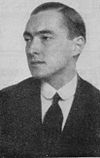
|
|
| 1951 | Hendrik Brugmans | The courageous pioneer of a united Europe |
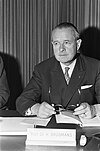
|
|
| 1952 | Alcide De Gasperi | To the statesman and European Alcide de Gasperi |
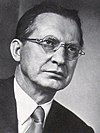
|
|
| 1953 | Jean Monnet | The creator of the first sovereign supranational European institution |

|
|
| 1954 | Konrad Adenauer | The powerful promoter of a united Europe |

|
|
| 1955 | Winston Churchill | Guardian of human freedom - admonisher of European youth | Churchill was a 1955 laureate, but was not able to accept it until 1956 |

|
| 1957 | Paul-Henri Spaak | Merit for Europe's unification and security |

|
|
| 1958 | Robert Schuman | For the unity of Europe |

|
|
| 1959 | George C. Marshall | For merit in the reconstruction and unification of Europe |

|
|
| 1960 | Joseph Bech | For services to Europe |

|
|
| 1961 | Walter Hallstein | New Europe of Voluntary Commitment |
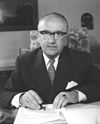
|
|
| 1963 | Edward Heath | Classification and stability in the European future |

|
|
| 1964 | Antonio Segni | For the unity and freedom of Europe |

|
|
| 1966 | Jens Otto Krag | For the unity of Europe |
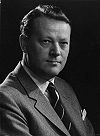
|
|
| 1967 | Joseph Luns | Commitment to Europe |
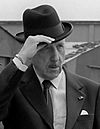
|
|
| 1969 | Commission of the European Communities | Communities in recognition of their great contributions to European unification |

|
|
| 1970 | François Seydoux de Clausonne | Freedom through unity | ||
| 1972 | Roy Jenkins | Commitment to Europe |
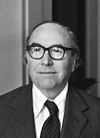
|
|
| 1973 | Salvador de Madariaga | A life for Europe - freedom, ethics, courage |

|
|
| 1976 | Leo Tindemans | Western clarity and responsibility |

|
|
| 1977 | Walter Scheel | For Europe and world peace |
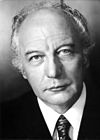
|
|
| 1978 | Konstantinos Karamanlis | Freedom and welfare in close connection |

|
|
| 1979 | Emilio Colombo | One life for Europe |

|
|
| 1981 | Simone Veil | For a democratic Europe |
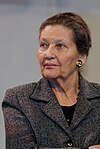
|
|
| 1982 | King Juan Carlos I of Spain | For unity and human dignity |

|
|
| 1984 | Karl Carstens | Area of Justice and Peace |

|
|
| 1986 | The people of Luxembourg | Example and perseverance on the way to European unity |

|
|
| 1987 | Henry Kissinger | For partnership and peace | "Henry Kissinger's name is the symbol of the policy of detente, peace, disarmament and the partnership." (From the speech of the then Aachen Mayor Kurt Malangré at the award) The award led to protests among the public and on the Executive Board. According to the reasons given by councilors Bernhard Schlag (Greens) and Peter Schmidt (SPD), the laureate gave birth to the idea of a nuclear war limited to Europe as early as 1957 and thus discredited himself. |

|
| 1988 | François Mitterrand and Helmut Kohl | For French-German friendship and Europe's future |

|
|
| 1989 | Brother Roger | Parable of the community |

|
|
| 1990 | Gyula Horn | All of Europe - From division to unity |
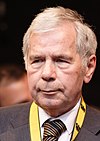
|
|
| 1991 | Václav Havel | Symbol of understanding in Europe |

|
|
| 1992 | Jacques Delors | Builder of the European single market |

|
|
| 1993 | Felipe González | Champion for freedom and democracy in Europe |
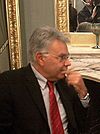
|
|
| 1994 | Gro Harlem Brundtland | Europe's responsibility for the world |

|
|
| 1995 | Franz Vranitzky | Europe is gaining new strength |

|
|
| 1996 | Queen Beatrix of the Netherlands | Good neighborhood in Europe |

|
|
| 1997 | Roman Duke | Our vision is Europe |

|
|
| 1998 | Bronislaw Geremek | Freedom and Democracy in Europe |

|
|
| 1999 | Tony Blair | Peace and growing together in Europe | Blair was recognized for his decisive action in the Kosovo crisis in 1999, in which he convinced US President Clinton of a clear NATO stance towards Slobodan Milošević and laid down the basic principles of a new doctrine for the international community. |

|
| 2000 | Bill Clinton | Partnership for freedom, democracy and peace |

|
|
| 2001 | György Konrád | Bridge builders for justice and reconciliation in Europe |

|
|
| 2002 | The euro | Identification with Europe | In 2002, the euro, the currency of the European Monetary Union, was awarded the International Charlemagne Prize in Aachen, because "like no other step in integration it promotes identification with Europe and thus makes a decisive, epoch-making contribution to the growing together of the family of nations". The award was accepted by Wim Duisenberg , then President of the European Central Bank . |

|
| 2003 | Valery Giscard d'Estaing | Constitution for a United Europe | Giscard d'Estaing received the award for his contribution to the drafting of a European constitution , which he helped to draft as President of the European Convention . |
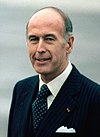
|
| 2004 | John Paul II | Extraordinary Charlemagne Prize Aachen. Pope John Paul II. Europe of Peace | On March 24, 2004, the Extraordinary International Charlemagne Prize in Aachen was awarded to Pope John Paul II in recognition of his work for the unity of Europe, the preservation of its values and the message of peace. |

|
| 2004 | Pat Cox | Enlargement and democratization of the European Union | On May 20, 2004 he was awarded the Charlemagne Prize in Aachen. The Charlemagne Prize Board of Directors honors his services to the EU expansion and democratization of the European Union. |

|
| 2005 | Carlo Azeglio Ciampi | Europe of values | The Italian President is honored for his services to Europe. Ciampi received the award on May 5th in the coronation hall of Aachen city hall. |
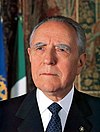
|
| 2006 | Jean-Claude Juncker | Motor for Europe | With credibility, competence and passion, he is the engine and thought leader of the integration process, the Charlemagne Prize board of directors justified the choice. |

|
| 2007 | Javier Solana | Peace in Europe - Peace in the world | On May 17th, 2007 Solana received the Charlemagne Prize for “outstanding commitment to a substantial contribution from Europe to a safer and more just world”. |

|
| 2008 | Angela Merkel | Europe succeeds together | "In recognition of her outstanding contribution to overcoming the crisis in the EU and in recognition of groundbreaking decisions on the progress of the European unification process [...] hereby honors a convinced European for her groundbreaking contribution to the European Basic Treaty, her integrating and humane, at the same time decisive and goal-oriented conduct of negotiations for their wise diplomacy and their committed approach to deepening European integration. ” Nicolas Sarkozy , President of France, gave the laudation. He praised the relationship between the French and Germany and Europe. |
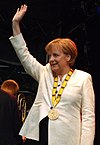
|
| 2009 | Andrea Riccardi | Peace, Solidarity and Human Dignity | Founder of the Community of Sant'Egidio . In addition to the numerous merits, the board of directors for the Charlemagne Prize particularly honored the "outstanding example of civil society commitment to a humane and - within and outside its borders - solidarity Europe, for understanding between peoples, cultures and religions and for a more peaceful and just world." |

|
| 2010 | Donald Tusk | Understanding, partnership, solidarity | "In appreciation of an impressive biography in the service of freedom and democracy and in recognition of his special services to the understanding and cooperation between the Republic of Poland and its European partners, the Board of Directors [...] honors [...] Donald Tusk, a Polish patriot and great European, who three decades ago laid the foundation for the reunification of Europe together with numerous members of the Solidarność movement and today stands in a special way for a democratic and cosmopolitan Poland among the European family of nations. " |

|
| 2011 | Jean-Claude Trichet | Stability and confidence for Europe | "In recognition of his outstanding services to the cohesion of the monetary union and the maintenance of the competitiveness of the European internal market as the cornerstone of our prosperity and social security." |

|
| 2012 | Wolfgang Schäuble | For the unity of Europe | For his "outstanding services in overcoming the division of Germany and Europe and his role as a source of ideas and an important actor in almost all integration progress in the past three decades and in recognition of his significant contributions to the stabilization of the monetary union and the deepening of the unification process". |

|
| 2013 | Dalia Grybauskaitė | Departure in north-east Europe | For "[...] one of the outstanding personalities of the Baltic region in recognition of their significant contribution to deeper integration of the European Union and overcoming the current crisis." |

|
| 2014 | Herman Van Rompuy | Integrative power for Europe | “In recognition of his significant services as a mediator and consensus-builder and at the same time as an important driving force behind European unification. [...] Pragmatic and strong in action, with great integrity and power of integration, by filling this newly created office (meaning President of the European Council) he makes a significant contribution to the consolidation and further development of the United Europe. " |

|
| 2015 | Martin Schulz | Strengthening Europe's citizens | "In recognition of his significant contribution to strengthening parliamentarism and democratic legitimation in the European Union and in recognition of his role as an important thought leader in the EU." |

|
| 2016 | Pope Francis | Europe - a society of values | For the "[...] outstanding messages and signs that his pontificate sets for peace and understanding, for mercy, tolerance, solidarity and the preservation of creation [...]" |
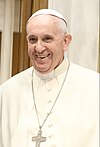
|
| 2017 | Timothy Garton Ash | Europe needs freedom, courage and tolerance | "In recognition of his outstanding scientific and journalistic work [...]" |

|
| 2018 | Emmanuel Macron | Re-establishment of the European project | "[...] for his vision of a new Europe and the re-establishment of the European project, of a new European sovereignty and close, newly structured cooperation between peoples and nations [...]" |

|
| 2019 | Antonio Guterres | For peaceful cooperation between peoples | "[...] in recognition of his commitment to revitalizing and consolidating multilateral cooperation on the basis of the values and goals of the European Union and the United Nations [...]" |

|
| 2020 | Klaus Johannis | Unity, solidarity and cohesion | "[...] for European values, for freedom and democracy, the protection of minorities and cultural diversity, who has made significant contributions to the rule of law and the independence of the judiciary [...]" |
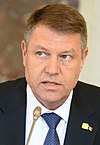
|
| 2022 |
Swjatlana Zichanouskaja Maryja Kalesnikawa Weranika Zepkala |
"[...] for their courageous and encouraging commitment [...] for freedom, democracy and for the maintenance of human rights" |

|
Extraordinary award winner
On March 24, 2004, an extraordinary Charlemagne Prize was awarded to Pope John Paul II for the only time so far (see above ).
literature
- Harald Kästner (Ed.): The Charlemagne Prize winners and their European speeches. Europa-Union-Verlag, Bonn 1983, ISBN 3-7713-0171-8 .
- Sabine Schulz: The Aachen Charlemagne Prize. Meyer and Meyer, Aachen 1988, ISBN 3-89124-060-0 .
- Helmut Reuther (Ed.): The international Charlemagne Prize in Aachen. Testimony to European history. Symbol of European unification (= library of the Börsenverein des Deutschen Buchhandels ). Transcontact Verlagsgesellschaft, Bonn 1993, DNB 1045452599 .
- Heinz Kundolf: The commemorative medals for the International Charlemagne Prize in Aachen , annual gift from the Aachener Münzfreunde. Aachener Münzfreunde, Aachen 1996, DNB 1064111076 .
- Franco Bettin, Anke Büttner (ed.): 50 years of the international Charlemagne Prize in Aachen, the award for services to European unification; History of the Aachen Citizens' Prize , International Charlemagne Prize Foundation in Aachen, Aachen 2000, DNB 988197448 .
- Olaf Müller , Bernd Vincken (ed.): Deepening integration - using Europe's strengths. Awarding of the International Charlemagne Prize in Aachen 2010 to Donald Tusk. Einhard, Aachen 2010, ISBN 978-3-936342-82-6 (partly German and partly English).
See also
- Charles Medal for European Media
- Aachen Peace Prize
- European Charlemagne Prize of the Sudeten German Landsmannschaft
Web links
- The International Charlemagne Prize in Aachen. International Charlemagne Prize Foundation in Aachen, accessed on December 15, 2014 (German, English, French, Dutch).
- History of origin. In: karlspreis.de. (current short version).
- Walter Eversheim : History of the Charlemagne Prize. (No longer available online.) City of Aachen, archived from the original on July 25, 2009 ; accessed on December 15, 2014 (more detailed).
- European Charlemagne Youth Prize competition. European Parliament , accessed December 15, 2014 .
Individual evidence
- ^ Charlemagne and the International Charlemagne Prize. International Charlemagne Prize Foundation, accessed on October 28, 2021 .
- ^ Foundation for the International Charlemagne Prize in Aachen (ed.): Lecture by Kurt Pfeiffer. In: karlspreis.de, accessed on October 28, 2021.
- ↑ International Charlemagne Prize in Aachen 2013. Live broadcast from the Aachen town hall. (No longer available online.) In: ard.de. May 9, 2013; Archived from the original on May 10, 2013 ; accessed on October 28, 2021 .
- ^ Charlemagne Prize framework program ( Memento from June 1, 2013 in the Internet Archive ). In: aachen.de .
- ↑ ast: Meike Thüllen turns up steam in matters of Charlemagne Prize files. (No longer available online.) In: Aachener Nachrichten . May 26, 2010, archived from the original on January 28, 2015 ; accessed on October 28, 2021 .
- ^ Society / Board of Directors. In: karlspreis.de, accessed on October 28, 2021 (last change: September 2021).
- ↑ Members of the board of directors of the Society for the Award of the International Charlemagne Prize in Aachen e. V. In: karlspreis.de, accessed on October 28, 2021 (last change: September 2021).
- ^ The previous speakers (chairmen) of the Charlemagne Prize Board. In: karlspreis.de, accessed on October 28, 2021.
- ^ The Charlemagne Prize Foundation. In: karlspreis.de, accessed on October 28, 2021.
- ↑ The Patrons. In: karlspreis.de, accessed on October 28, 2021.
- ↑ Youth projects: Apply now for the European Charlemagne Youth Prize. (No longer available online.) In: European Parliament website. European Parliament, November 17, 2008, archived from the original on May 25, 2009 ; accessed on October 28, 2021 .
- ↑ The European Charlemagne Prize for Youth. Former awardees. (No longer available online.) In: charlemagneyouthprize.eu. Archived from the original on May 18, 2015 ; Retrieved April 29, 2015 .
- ^ The Charlemagne Prize Fellowship. Retrieved September 8, 2021 .
- ↑ Andrej Hunko: A price for war. (No longer available online.) In: z-ac | Newspaper for Aachen and the surrounding area. February 19, 2007, archived from the original on May 11, 2008 ; accessed on October 28, 2021 (last changed on Monday, April 16, 2007).
- ↑ Rodney Atkinson: Responses: The Totalitarian Founders of the EU (No longer available online.) In: Chronicles, A Magazine of American Culture. March 18, 2008, archived from the original on June 13, 2011 ; accessed on October 28, 2021 (English).
- ^ Blair's Charlemagne Prize created by Nazis. (No longer available online.) In: Freenations. December 11, 2003, archived from the original on February 15, 2004 ; accessed on May 16, 2015 .
- ↑ due date. December 25, 2009 - 60 years ago: International Charlemagne Prize donated in Aachen. Saving Western Culture. In: WDR . September 25, 2009, accessed October 28, 2021.
- ↑ a b Charlemagne Prize: Crown and Honor . In: The mirror . No. 13 , 1987, pp. 125-127 (on- line ).
- ^ Declaration by the Council of the City of Aachen and the Society for the Awarding of the International Charlemagne Prize in Aachen e. V. in 1990. (No longer available online.) In: karlspreis.de. November 14, 1990, archived from the original on March 3, 2010 ; accessed on October 28, 2021 .
- ↑ Luxembourg Leaks - How the Luxembourg tax haven helps corporations to save taxes. In: Süddeutsche Zeitung . Retrieved January 22, 2019 .
- ^ Daniel Goffart , Hans-Jürgen Moritz, Marcel Wollscheid: The hypocritical: Ex-employee reveals why Schulz is not "Saint Martin" . In: FOCUS magazine . No. 7 , February 18, 2017 ( focus.de [accessed October 28, 2021]).
- ↑ Till Schwarze: Luxemburg Leaks: Juncker has to fight his own politics . In: The time . November 12, 2014, ISSN 0044-2070 ( zeit.de [accessed January 22, 2019]).
- ↑ Markus Becker: "Luxemburg Leaks": Revelers in the dock . In: Spiegel Online . April 26, 2016 ( spiegel.de [accessed January 22, 2019]).
- ↑ Schulz, Juncker and Luxleaks: Bodyguard in Brussels. In: Handelsblatt . Retrieved January 22, 2019 .
- ↑ Marcus Theurer, London: Tax Avoidance: Mc Donald's says no to paying taxes . ISSN 0174-4909 ( faz.net [accessed January 22, 2019]).
- ↑ Life's work: Wolfgang Schäuble. In: BigBrotherAwards. Retrieved January 22, 2019 .
- ↑ ler / Reuters / dpa / ddp: Defense against terrorism: All against Schäuble - Rüffel von Köhler . In: Spiegel . July 15, 2007 ( spiegel.de [accessed January 22, 2019]).
- ↑ Interview by Robert Roßmann: Aviation Security Act. "Schäuble is obsessed" . Sabine Leutheusser-Schnarrenberger criticizes the interior minister's approach and accuses him of deliberately blurring peace and martial law. In: Süddeutsche Zeitung . 2010, ISSN 0174-4917 ( sueddeutsche.de [accessed on January 22, 2019]).
- ↑ Madeleine Gullert: Criticism of Emmanuel Macron because of Tihange shares. (No longer available online.) In: Aachener Nachrichten. March 17, 2018, formerly in the original ; accessed on October 28, 2021 (beginning of article freely available). ( Page no longer available , search in web archives )
- ^ So Paul Henri Spaak , winner of the Charlemagne Prize in 1957, in his acceptance speech in 1957 ( speech by Paul Henri Spaak. In: karlspreis.de, accessed on October 28, 2021).
- ^ The European political impact of the Charlemagne Prize ( Memento from September 12, 2013 in the Internet Archive ). In: karlspreis.de, accessed on October 28, 2021.
- ^ The Charlemagne Prize winner 1987 Henry A. Kissinger. Speech by the Lord Mayor of Aachen, Kurt Malangré . In: The international Charlemagne Prize in Aachen. December 2007, accessed May 7, 2016 .
- ^ The 2007 Charlemagne Prize Winner Javier Solana Madariaga. In: The international Charlemagne Prize in Aachen. May 17, 2007, accessed May 7, 2016 .
- ↑ Charlemagne Prize Winners 2007 - Explanation of the Board of Directors. In: The international Charlemagne Prize in Aachen. December 2006, accessed May 7, 2016 .
- ^ The 2008 Charlemagne Prize winner Angela Merkel. In: The international Charlemagne Prize in Aachen. May 1, 2008, accessed May 7, 2016 .
- ↑ Charlemagne Prize Winners 2008 - Explanation of the Board of Directors. In: The international Charlemagne Prize in Aachen. December 2007, accessed May 7, 2016 .
- ^ Laudation from the President of the French Republic, Nicolas Sarkozy. In: The international Charlemagne Prize in Aachen. May 1, 2008, accessed May 7, 2016 .
- ↑ Video of the speech of the President of the French Republic Nicolas Sarkozy. ( FLV ; 202 MB) (No longer available online.) In: Élysée - Présidence de la République . May 1, 2008, archived from the original on March 17, 2013 ; accessed on December 13, 2014 (French, video no longer available).
- ^ The Charlemagne Prize winner 2009 Andrea Riccardi. In: The international Charlemagne Prize in Aachen. May 21, 2009. Retrieved May 7, 2016 .
- ↑ Charlemagne Prize Winners 2009 - Explanation of the Board of Directors. In: The international Charlemagne Prize in Aachen. March 5, 2009. Retrieved May 7, 2016 .
- ^ The Charlemagne Prize winner 2010 Donald Tusk. In: The international Charlemagne Prize in Aachen. May 13, 2010, accessed May 7, 2016 .
- ↑ Charlemagne Prize Winners 2010 - Explanation of the Board of Directors. In: The international Charlemagne Prize in Aachen. January 16, 2010, accessed May 7, 2016 .
- ^ The Charlemagne Prize winner 2011 Jean-Claude Trichet. In: The international Charlemagne Prize in Aachen. June 2, 2011, accessed May 7, 2016 .
- ↑ Aachen Charlemagne Prize 2011 goes to Trichet. In: Frankfurter Allgemeine Zeitung . December 4, 2010, accessed May 7, 2016 .
- ↑ Charlemagne Prize Winners 2011 - Explanation of the Board of Directors. In: The international Charlemagne Prize in Aachen. December 4, 2010, accessed May 7, 2016 .
- ^ The Charlemagne Prize winner 2012 Wolfgang Schäuble. In: The international Charlemagne Prize in Aachen. May 17, 2012, accessed May 7, 2016 .
- ↑ Charlemagne Prize Winners 2012 - Explanation of the Board of Directors. In: The international Charlemagne Prize in Aachen. December 10, 2011, accessed May 7, 2016 .
- ^ The 2013 Charlemagne Prize winner Dalia Grybauskaitė. In: The international Charlemagne Prize in Aachen. May 9, 2013, accessed May 7, 2016 .
- ↑ Charlemagne Prize Winners 2013 - Explanation of the Board of Directors. In: The international Charlemagne Prize in Aachen. December 8, 2012, accessed May 7, 2016 .
- ↑ The Charlemagne Prize Winner 2014 Herman Van Rompuy. In: The international Charlemagne Prize in Aachen. May 29, 2014. Retrieved May 7, 2016 .
- ↑ Charlemagne Prize Winners 2014 - Explanation of the Board of Directors. In: The international Charlemagne Prize in Aachen. December 7, 2013, accessed May 7, 2016 .
- ^ The 2015 Charlemagne Prize laureate Martin Schulz. In: The international Charlemagne Prize in Aachen. May 14, 2015, accessed October 18, 2016 .
- ↑ Charlemagne Prize Winners 2015 - Explanation of the Board of Directors. In: The international Charlemagne Prize in Aachen. December 13, 2014, accessed May 7, 2016 .
- ^ The Charlemagne Prize Winner 2016 His Holiness Pope Francis. In: The international Charlemagne Prize in Aachen. May 6, 2016. Retrieved May 26, 2017 .
- ↑ Charlemagne Prize Winners 2016 - Explanation of the Board of Directors. In: The international Charlemagne Prize in Aachen. May 6, 2016. Retrieved October 18, 2016 .
- ↑ The 2017 Charlemagne Prize winner Timothy Garton Ash. In: The international Charlemagne Prize in Aachen. January 22, 2017. Retrieved January 22, 2017 .
- ↑ Charlemagne Prize Winners 2017 - Explanation of the Board of Directors. In: The international Charlemagne Prize in Aachen. January 22, 2017. Retrieved January 22, 2017 .
- ↑ Charlemagne Prize 2018 - Explanation of the Board of Directors. (No longer available online.) In: The international Charlemagne Prize in Aachen. May 10, 2018, archived from the original on June 13, 2018 ; accessed on May 10, 2018 .
- ↑ a b Charlemagne Prize 2019 - Explanation of the Board of Directors. (No longer available online.) In: The international Charlemagne Prize in Aachen. January 29, 2019, archived from the original on March 11, 2019 ; accessed on January 31, 2019 .
-
↑ a b As a result of the COVID-19 pandemic , the award ceremony was initially postponed from May 21, 2020 to May 13, 2021 and, after another postponement, was finally rescheduled on October 2, 2021.
Sources: Charlemagne Prize award ceremony will be postponed 2020. International Charlemagne Prize Foundation in Aachen, accessed on September 30, 2021 . What would the Charlemagne Prize have celebrated? International Charlemagne Prize Foundation in Aachen, May 7, 2021, accessed on September 30, 2021 . Romania's President will receive the Charlemagne Prize on Saturday. In: Rheinische Post. September 29, 2021, accessed September 30, 2021 . Establishment of the board of directors of the society for the award of the International Charlemagne Prize in Aachen to the President of Romania, Klaus Johannis. International Charlemagne Prize Foundation in Aachen, October 4, 2021, accessed on October 4, 2021 .
- ↑ Svetlana Tichanowskaja receives the Charlemagne Prize 2022 , Tagesspiegel, December 17, 2021.

